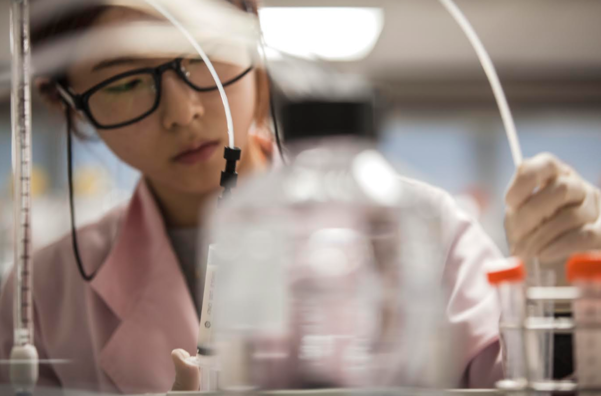Input 2021.02.16 17:37

According to the bio-pharmaceutical industry on the 16th, Samsung Bioepis started phase 3 of global clinical trials for’SB15′, a macular degeneration treatment last year, and started phase 3 clinical trials of Celltrion’CT-P42′. The drug developed by Samsung Bioepis and Celltrion is a biosimilar of’Ilia’, a macular degeneration treatment jointly developed by Regeneron and Bayer in the United States. The Aylia substance patent expires in 2023 in the US, 2024 in Korea, and 2025 in Europe. Accordingly, after the expiration of the patent, competition for the generic drug market is expected to intensify. Ilia’s global sales were 8.5 trillion won (as of 2019).
Samsung Bioepis started phase 3 of global clinical trials of’SB15′, an Ilia biosimilar last year. Clinical trials are scheduled to be conducted in 10 countries, including Korea and the United States, until February next year. In clinical practice, the efficacy and safety of SB15 and the original drug are compared in 226 patients with macular degeneration. Separately, Samsung Bioepis has also entered the stage of judging approval for the US marketing of’SB11′, a treatment for macular degeneration. SB11 is a biosimilar of Lucentis, a macular degeneration treatment, sold by multinational pharmaceutical companies Roche and Novartis.
Recently, Celltrion entered the 3rd phase of clinical trial of’CT-P42′, the AIIA biosimilar. Clinical trials will start on April 1st in 13 countries and continue until November next year. In clinical trials, the efficacy and safety of CT-P42 and the original drug are compared in patients with macular degeneration. The expected number of recruited patients is 300.
In addition, Samcheondang Pharmaceutical and Alteogen are also developing. Samcheondang Pharm applied for a phase 3 clinical trial of’SCD411′, an Ailea biosimilar to the US Food and Drug Administration (FDA). The company has completed patent registration in the United States following Japan, based on its own formulation technology. Phase 3 clinical trials have been conducted in 155 hospitals in 13 countries since the first half of last year. It set a goal to end clinical trials in the second half of 2022 and obtain marketing approvals in the US and Japan in the second half of 2023. In 2019, Samcheondang Pharmaceutical also signed an exclusive sales right and supply contract with Japan’s Takeda Group’s Senju Pharmaceutical for SCD411.
Alteogen, which develops’ALT-L9′, an Ailea biosimilar, completed patient medication in phase 1 clinical trials in December last year. Currently, Asan Hospital, Bundang Seoul National University Hospital, Samsung Seoul Hospital, and Severance Hospital have started clinical trials of a biosimilar being developed with Ilia for 28 patients with macular degeneration related to wet age. Alteogen also established its subsidiary Altos Biologics to conduct a global clinical license for biosimilar development. Alteogen has registered patents for its proprietary Ailia formulation in several countries, including the United States.
Macular degeneration is one of the three major blindness diseases along with cataracts and diabetic retinopathy. Macular degeneration is a disease that causes abnormalities in the macula located in the center of the retina inside the eye, and the incidence increases with age. Symptoms of blurred vision or curved lines and shapes are typical, but it is easy to confuse with presbyopia and there are no other symptoms at the beginning, making it difficult for the patient to detect the disease on its own.
The problem is that there are not many treatments for this disease, and the medical cost burden is high because the drug is expensive. One vial (vial·3mg) is priced at 1 million won. Although the government’s health insurance benefits have been applied to reduce the burden of drug prices, they are still expensive drugs. Macular degeneration, if neglected, increases the risk of blindness, and long-term treatments are required to maintain vision. This is why patients pay attention to the development of biosimilars that will reduce costs. An official from the Korea Health Industry Development Institute said, “In the future, the release of Ailia biosimilars, etc., within five years, when the original drug patent expires, will change the global market.”
